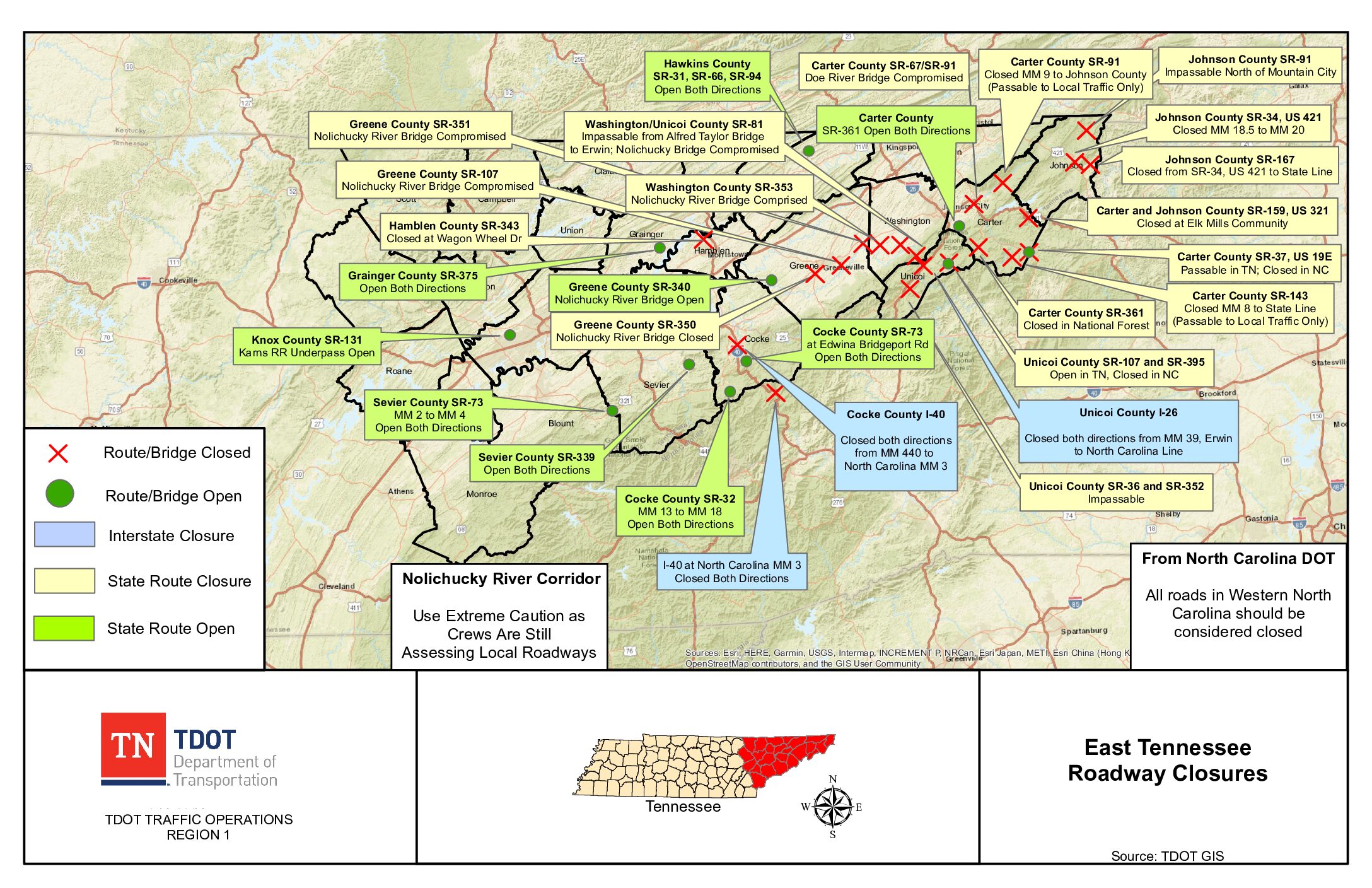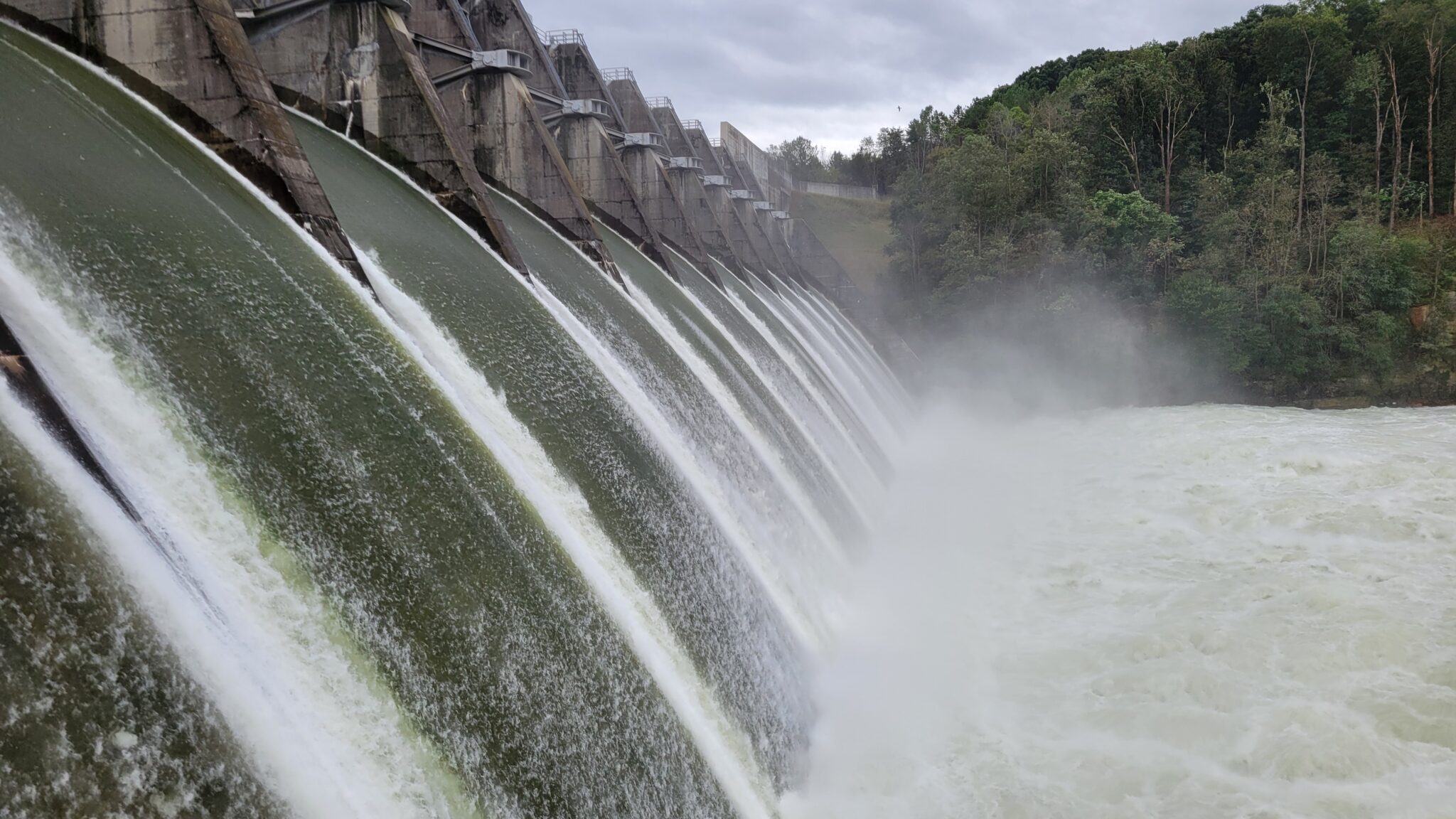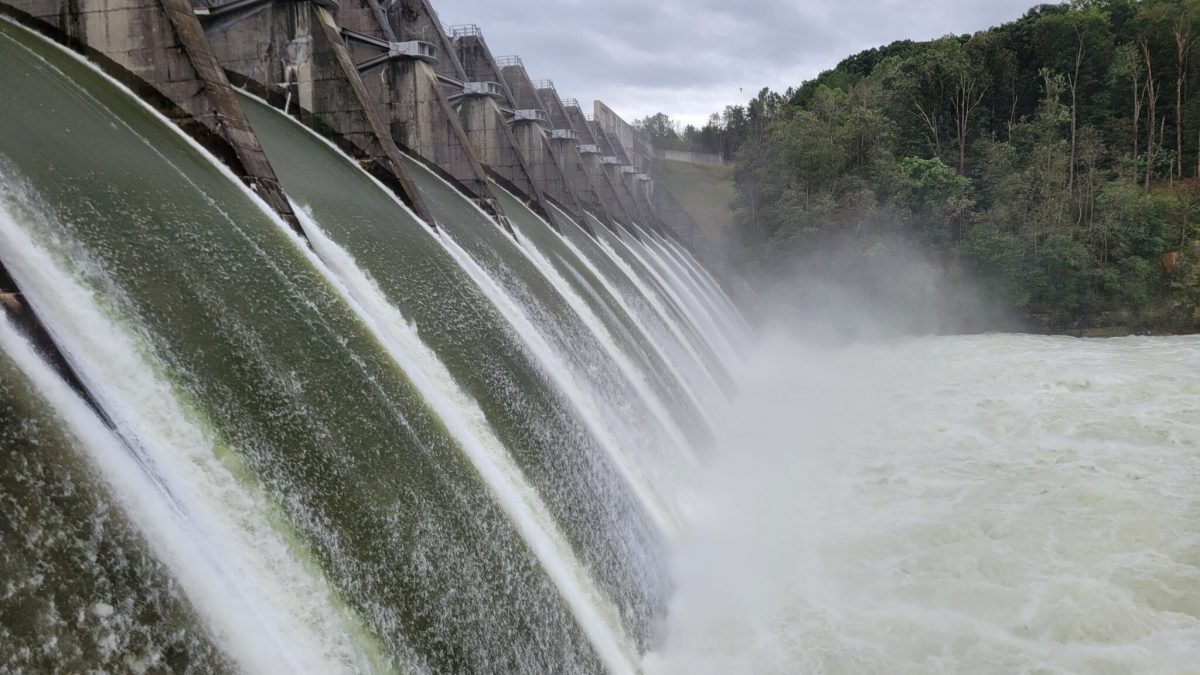
Four days after Hurricane Helene unleashed devastation across parts of rural East Tennessee, emergency officials are switching from rescue to recovery operations.
Scores of people are still reported missing — a number that has shifted up and down since Saturday — underscoring the immense challenges in accounting for residents in areas with no power, impassable roads, and limited cell service.
As of Monday night, 102 were missing in four counties, according to the Tennessee Emergency Management Agency (TEMA), which stressed that the missing may include those cut off from roads and cell coverage. State officials confirmed at least six Tennessee weather-related deaths thus far, according to TEMA. They include three in Unicoi County, and one person in each of the following counties: Knox, Johnson, and Washington.
Thousands of homes and businesses remain without power, and hundreds of roads and bridges can’t be traveled, including nearly every road linking Tennessee to North Carolina. There is no official toll yet on the number of homes and businesses damaged or destroyed. At least four wastewater treatment plants have been thrown offline due to flooding and water utilities in six counties have reported “operational issues,” according to TEMA.
“Search and damage assessments are ongoing and we’re beginning to be able to start to put the pieces back together,” said Myron Hughes, a public information officer for TEMA’s All-Hazards Incident Management Team.
Hotline to coordinate missing person reports: 800-824-3463
Hughes briefed reporters Monday, alongside public officials in hard-hit Unicoi County, where a dramatic and ultimately successful rescue operation unfolded Friday morning to airlift more than 60 staff and patients stranded on the rooftop of Unicoi County Hospital in Erwin.
Unicoi County Emergency Management Director and Incident Commander Jim Erwin said personnel were conducting searches Monday, a task he expected to be complete in impacted areas by day’s end.
Meanwhile, residents and emergency crews continue to grapple with the damage left behind by high winds, rainfall and flooding in hard-hit counties, including Unicoi, Carter, Cocke, Greene, Hamblen, Hawkins, Johnson, Sevier, and Washington.
At Monday’s Unicoi County press conference, an unidentified man, speaking in Spanish through an interpreter, pressed emergency responders for answers about why his still-missing wife wasn’t rescued as she and co-workers tried to flee rising waters Friday morning outside their workplace, Impact Plastics.
The 911 call system swas inundated and many of the county’s resources were deployed to Unicoi County Hospital, Erwin responded, and noted he was also at the hospital. A crew rescued four people fleeing Industrial Park, where the plastics factory was located, Erwin said, then had to turn back.
“They did not get further because water was already so high,” he said. “Some people were saved and we’re still searching. … We all have hopes that we will find some more alive. Our hearts are deep and we’ll be here to work with families.”
Gov. Bill Lee’s request for a Major Disaster Declaration was approved by the Biden Administration Saturday, activating Federal Emergency Management Agency’s (FEMA) assistance in 12 Tennessee counties.
The Tennessee National Guard and first responders from outside the disaster region were dispatched to assist in search and recovery efforts.
The Tennessee Bureau of Investigation established a hotline number to coordinate reports of missing persons: The number is 800-824-3463.

Roads and bridges
In the first 36 hours following the disaster, the Tennessee Department of Transportation (TDOT) assessed damages and inspected 100 bridges across seven counties.
“We still have hundreds to go,” a spokesperson said in an emailed statement on Monday.
More than 300 TDOT employees have joined in the inspection efforts, but the task ahead will surpass the capacity of the state agency.
TDOT is in the process of awarding multiple debris removal and construction contracts to supplement state crews, with contracted work expected to begin later this week.
Dams and Rivers
Over the weekend, reports of imminent dam collapses led to evacuations in some areas. But on Monday a spokesperson for the Tennessee Valley Authority confirmed that all 49 of its dams are “stable and operating as designed.”
“We are assessing any transmission infrastructure impacts, which are minimal on the TVA system,” Scott Brooks, an agency spokesperson, said in an email.
Right now, they’re asking for water and people from all over are bringing water to us. Budweiser just brought an entire tractor-trailer full. … Rep. Dan Howell from Cleveland is sending water from his district. When you’ve got 37,000 people and no water, we’re so grateful for everybody doing that.
– Rep. Jeremy Faison, Cocke County Republican
Brooks said most of the damage is on local utility systems. TVA is working with local power companies on restoration and repairs, he said.
State Rep. Jeremy Faison, a Republican who represents hard-hit Cocke County, said thousands are without water after utilities were knocked offline. “So, literally, unless you’re on a well, you have no water in my county right now,” he said.
“Right now, they’re asking for water and people from all over are bringing water to us,” he said. “Budweiser just brought an entire tractor-trailer full. … Rep. Dan Howell from Cleveland is sending water from his district. When you’ve got 37,000 people and no water, we’re so grateful for everybody doing that.”
TVA is monitoring extensive flooding in its tributary dams, which control water movement throughout the power provider’s system. The extensive flooding in reservoirs has prompted record high releases at places, including Douglas Dam in Sevier county.
“We are aware these record releases are causing localized flooding on the Tennessee River,” Brooks said.
River levels monitored by TVA illustrated the enormity of rising water in the region. The French Broad River in Newport, Tenn, reached 23 feet — 13 feet above flood stage. The Pigeon River, also in Newport, set a new record stage of 28.9 feet, 20.9 feet over flood stage. And the Nolichucky River at the Nolichucky Dam in Greene County also recorded record high levels of water.
Senior reporter Sam Stockard contributed to this report.
Tennessee Lookout is part of States Newsroom, a nonprofit news network supported by grants and a coalition of donors as a 501c(3) public charity. Tennessee Lookout maintains editorial independence. Contact Editor Holly McCall for questions: info@tennesseelookout.com. Follow Tennessee Lookout on Facebook and X.
